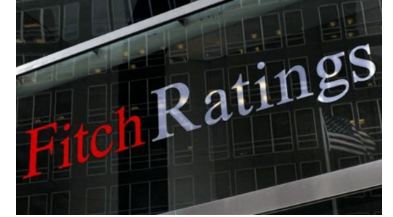Global rating agency Fitch on Monday upgraded Pakistan’s long-term foreign currency issuer default rating (IDR) to ‘CCC’ from ‘CCC-’, citing the country’s improved external liquidity and funding conditions following the staff-level agreement with the International Monetary Fund (IMF) on a nine-month Stand-by Arrangement (SBA) in June.
Pakistan had secured the badly-needed $3bn short-term financial package from the IMF last month, giving the economy a much-awaited respite as it teeters on the brink of default.
The executive board of the IMF will meet on July 12 to review the new arrangement.
In a statement issued today, Fitch said: “We expect the SLA to be approved by the IMF board in July, catalysing other funding and anchoring policies around parliamentary elections due by October.”
However, it said the programme’s implementation and external funding risks remain due to a “volatile political climate and large external financing requirement”.
Talking about IMF-driven reforms taken by the government, the agency noted that Pakistan had recently taken measures to address shortfalls in its revenue collection, energy subsidies and policy inconsistent with a market-determined exchange rate, including import financing restrictions.
It said these issues had held up the last three reviews of Pakistan’s previous IMF programme, before its expiry in June.
“Most recently, the government amended its proposed budget for the fiscal year ending June 2024 (FY24) to introduce new revenue measures and cut spending, following additional tax measures and subsidy reforms in February. The authorities appeared to abandon exchange-rate management in January 2023, although guidelines on prioritising imports were only removed in June.”
On risks regarding the implementation of the programme, Fitch said Pakistan had an “extensive record of going off-track on its commitments to the IMF”.
“We understand the government has already made all the required policy actions under the SBA. Nevertheless, there is still scope for delays and challenges to implementation as well as new policy missteps ahead of the October elections and uncertainty over the post-election commitment to the programme,” it stated.
The New York-based agency — one of the three major global rating agencies — said IMF’s board approval would unlock an immediate disbursement of $1.2 billion, with the remaining $1.8 billion scheduled after reviews in November and February 2024.
It added that Saudi Arabia and the United Arab Emirates have committed another $3 billion in deposits, and the authorities expected $3-$5 billion in other new multilateral funding after the IMF agreement.
“The SBA should also facilitate disbursement of some of the $10 billion in aid pledges made at the January 2023 flood relief conference, mostly in the form of project loans (USD2 billion in the budget).”
On Pakistan’s overall funding target ambitions, the agency said authorities expected $25 billion in gross new external financing in FY24 against $15 billion in public debt maturities, including $1 billion in bonds and $3.6 billion to multilateral creditors.
“The government funding target includes $1.5 billion in market issuance and $4.5 billion in commercial bank borrowing, both of which could prove challenging, although some of the loans not rolled over in FY23 could now return,” it said, adding that $9 billion in maturing deposits from China, Saudi Arabia and the UAE would likely be rolled over as in FY23.
Finance Minister Ishaq Dar welcomed the upgrade. “Another positive news towards current economic revival journey, God be praised,” he said in a statement.
‘Current account deficit narrowed sharply’
In its report today, Fitch further stated that Pakistan’s current account deficit (CAD) had narrowed “sharply” because of the earlier restrictions on imports and the availability of foreign exchange, tighter fiscal and economic policies, measures to limit energy consumption and lower commodity prices.
“Pakistan posted current account surpluses in March-May 2023, and we forecast a CAD of about $4 billion (1 per cent of GDP) in FY24, after $3 billion in FY23 and over $17 billion in FY22. Our forecast CAD is lower than the $6 billion in the budget, on the assumption that not all of the planned new funding will materialise, constraining imports.”
“The CAD could widen more than we expect, given continued reports of import backlogs, the dependence of the manufacturing sector on foreign inputs, and reconstruction needs after last year’s floods,” it said.
However, the agency said currency depreciation could limit this increase while remittance inflows could recover after “partly switching to unofficial channels to benefit from more favourable parallel market exchange rates”.
Reserves and debt
Moreover, the agency noted that liquid net foreign exchange reserves of the State Bank of Pakistan were around $4 billion since February this year which it said was less than a month of imports.
“The collapse in reserves reflected large CADs, external debt servicing and earlier FX intervention by the central bank. We expect a modest recovery for the rest of FY24 on new external financing flows, although these flows will also lead to a renewed widening of the CAD,” it said.
Furthermore, Fitch said it expected the consolidated general government (GG) fiscal deficit to widen to 7.6pc from 7pc in FY23, which according to it would be driven by higher interest costs on domestic debt.
“Fiscal consolidation will drive a slight improvement in our forecast GG primary deficit to 0.1pc of GDP in FY24, from 0.5pc of GDP in FY23.
“The GG debt/GDP of 74pc at FY23 is in line with the median for ‘B’, ‘C’ and ‘D’ rating category sovereigns and debt dynamics are broadly stable owing to high nominal growth over the medium term. Nevertheless, debt/revenue (over 600pc) and interest/revenue (nearly 60pc) are far worse than that of peers,” the agency added.
In its statement, Fitch also mentioned the protests that erupted following PTI Chairman Imran Khan’s arrest on May 9.
“In the ensuing crackdown, a large number of PTI members were arrested, with several high-ranking PTI politicians quitting politics. Nevertheless, the enduring popularity of Mr Khan and PTI creates policy uncertainty around elections,” it added.

















